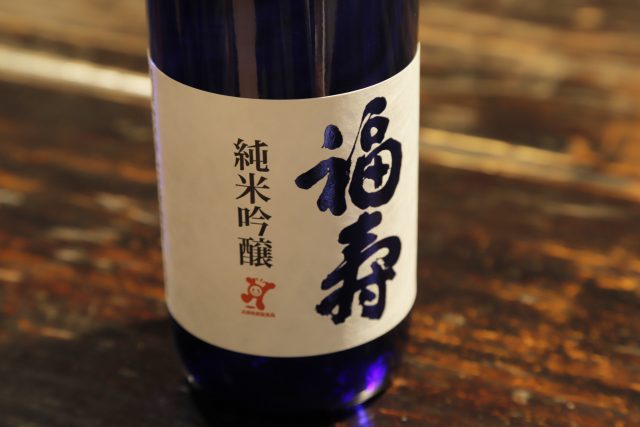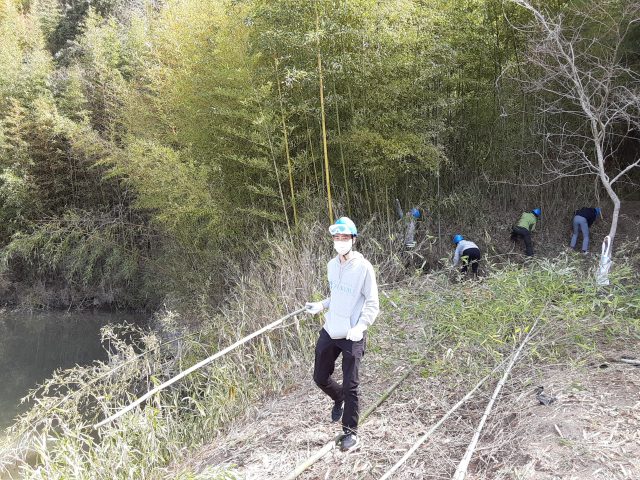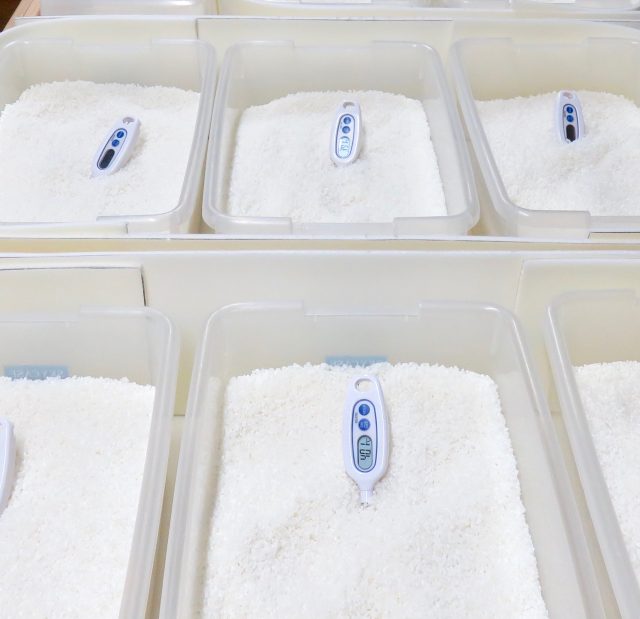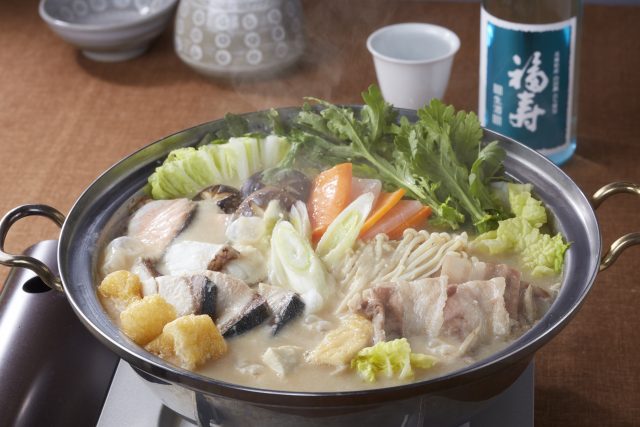Fukuju reveals plans for a sustainable future
In 2021 Fukuju Brewery celebrated its 270th anniversary and its owner put in place a plan to become more sustainable by its 300th anniversary.

The goal is to adapt to renewable energy sources by 2030, plus there are also plans afoot to launch the brewery’s first organic sake very soon, showing a natural evolution for the sake maker.

The Fukuju sake maker’s initiatives for sustainable sake production have already seen a considerable reduction of its environmental impact over the last 10 years. As a result, even though the production volume has tripled between 2010 and 2017, the brewery has been able to achieve a 10% annual average energy saving.
“In addition, we have been able to greatly reduce our impact for those brewing processes where production efficiency is greatly affected by the experience and instincts of craftsmen, such as temperature and moisture management, through the use of our unique Tarai-koji method (innovative koji production method that utilizes small tubs), the implementation of the latest IoT based remote temperature monitoring system, and other control technology. We have improved our working environment from a tough one with a lot of night shifts to one where people can work easily and efficiently,” said Fukuju Brewery’s president and representative director Takenosuke Yasufuku.
“In the traditional industry of sake, the work of people, the experience and skills of veterans, will always be important. However, we are also highly regarded thanks to the implementation of the IoT system and the establishment of advanced production processes that increase the efficiency of energy consumption,” said Yasufuku, adding that the business hopes “to continue to give back to the community based on local production, local consumption, through work that respects both nature and people”.
Fukuju Brewery was founded in 1751 in the sake brewing district Nada, in Kobe, Japan, where the sake is still made today. In the Great Hanshin-Awaji Earthquake of 1995, the former wooden brewery was destroyed, but thanks to the support from all districts it was rebuilt anew, and on 8 May 1996, the new Fukuju Brewery was established. In addition to the brewery building, by 1997 the company also opened several facilities where customers could enjoy tasting Japanese culture along with sake.
The Fukuju brand name comes from Fukurokuju, one of the Seven Gods of Luck. The name incorporates the company’s wish that those who drink their sake will be healthy, blessed with good fortune, and many descendants.
“Fukujugura, our brewery building, combines sake production with new equipment that recreates traditional brewing principles, with the skills of producing sake by hand. It is a 5-story building that covers a total area of 3,517 m2. Learning from the Great Hanshin-Awaji Earthquake, we have chosen to build one of the few sake breweries that could withstand a magnitude 8 earthquake,” said Yasufuku.

As a business, the sake maker believes that “it is necessary to balance environmental value (reducing environmental impact) with business value (increasing sales, reducing costs)” to lay the foundations that will lead the sake brewery to survive and expand for future generations.
“Specifically, we need to engage in actions to prevent global warming, increase production, preserve water, reuse sake lees, recycle bottles, take care of biodiversity, and deal with hazardous substances or environmentally damaging substances. By carrying this out, we shall expand our energy-saving and recycling activities, which should help us reduce both our environmental impact and our costs,” said Yasufuku, explaining: “Our sake production has a long history dating back 270 years, with traditions and techniques being passed down. The people involved in sake production have played a major role in this history. Our sake production is both traditional yet continues to change as we seek the very best. Ueda-style koji production (Tarai koji) and other innovations our employees have come up with enable us to improve our quality and achieve a high level of economic production.”
From the perspective of the sake production industry, revitalising the community through developing local industries will almost certainly stimulate the demand for sake, ensure the sustainability of industrial tourism, create agricultural brands, and lead to the development of sustainable agriculture. More specifically, stimulating the demand for sake will increase sake sales, ensuring the sustainability of industrial tourism will increase tourists (brewery tourism), creating agricultural brands will provide added value (Yamada Nishiki, Japan’s top sake rice), and the development of sustainable agriculture will provide stable incomes.
“The results of all this should lead to ripple effects such as increased salaries, provided there is a certain degree of local economic development,” said Yasufuku.
As Yasufuku highlighted: “We abolished the toji (brew-master) system in 2006. Since then, the brewing has been done by our employees, under the guidance of Dr. Ueda from the Ueda Research Institute of Brewery. Our goal is not sheer volume, but creating the finest taste, so we brew our sake carefully by hand. Our koji is still entirely handmade, and we use traditional koshiki steaming vats for our rice, valuing the individuality of each batch to create a sake that our customers describe as having “a dignified framework”, “a mellow and gentle mouth-feel”, and “a well-rounded, full-bodied flavor” thanks to the bounty of the Rokko terroir.
Indeed, Yasufuku reminds: “The survival and expansion of sake breweries are vital for an understanding of Japan’s history, traditions, and culture. But at the same time, they can be seen as a foundation for higher development of future culture.”
Fukuju Brewery, together with the NPO Peace & Nature, is also working to restore the abandoned terraced rice fields in the Ozo district of Kita Ward, Kobe, the area where rice for sake brewing is grown. This is an effort that will not only revive the paddy fields for the future, but also restore the bamboo forests in the area, and contribute to the conservation of the local ecosystem

Additionally, “Olympia Iwaya”, a local support center that employs persons with disabilities in the Nada Ward of Kobe, has started a collaboration with Fukuju Brewery: butter cookies made with Fukuju Junmai Ginjo sake lees. This zero-waste initiative has since become a way to turn the byproduct of the brewing process into tasty treats that will ultimately help the people with disabilities connected with the centre.
The brewery has also contributed to the local community by helping with ways to improve issues like the decline in the farming population, and by developing new initiatives, such as the cultivation of Yamada Nishiki rice that uses fertilizer made from “recycled phosphorus” extracted from sewage in Kobe, and the use of drone-based remote sensing technology to analyze the production field.
For a long time now, Fukuju Brewery has been aiming to create value through the amalgamation of the sake brewing, tourism, and restaurant industries, under the slogan “giving back to the community based on local production, local consumption, through work that respects both nature and people”. Right now, and for the future, this is part of the plan and each new step in this direction will contribute to a planet-wide positive change to make sustainability and ecological awareness everyone’s responsibility, thus paving the way to the next generation’s plan.
Related news
What Portugal can do for the UK wine trade
The first 0.5% Bordeaux red hits the market
VIK 2022: ‘the beginning of a journey toward self-sufficiency’
